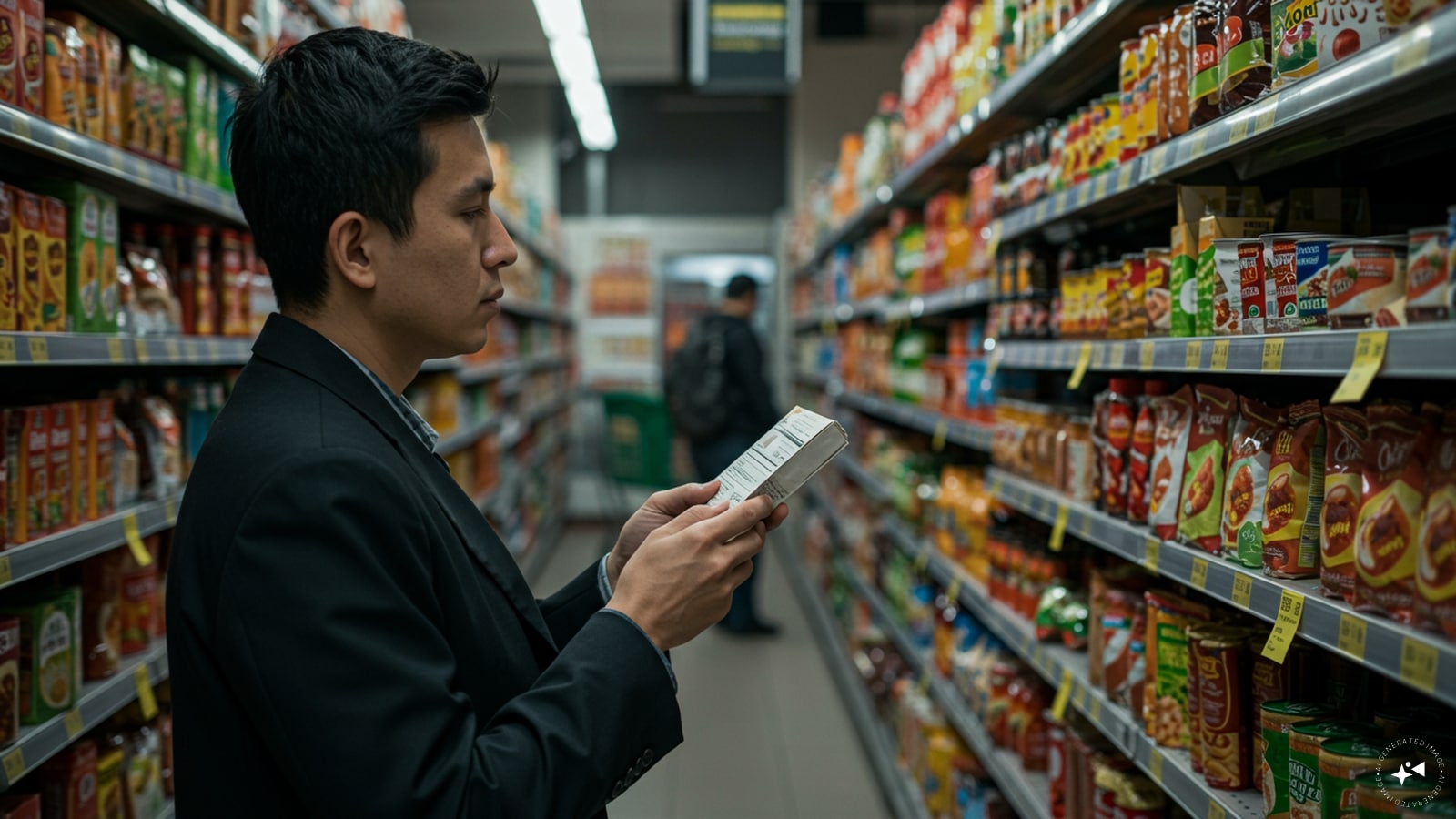Here’s Why FSSAI Is Warning Food Brands Against Using ‘100%’ Claims On Labels

Last Updated:June 02, 2025, 16:15 IST
The FSSAI has issued a warning to food businesses against using misleading ‘100%’ claims on their packaging, labels, or advertisements. Read on to find out why.
This move aims to protect consumer rights and ensure equitable practices in food advertising. (AI Generated Image)
The Food Safety and Standards Authority of India (FSSAI) warned food businesses against using ‘100 per cent’ claims on their packaging, labels and advertisements. The regulatory body issued the statement as many companies were promoting their products like ‘100 per cent natural’, ‘100 per cent pure’ and ‘100 per cent organic’.
In the FSSAI notice dated May 30, 2025, the food body pointed out that the term 100 per cent is not recognised under the Food Safety and Standards Act of 2006 or the Food Safety and Standards (Advertising and Claims) Regulations of 2018. They said the phrasing could mislead consumers and rig the market competition.
On surface ‘100 per cent’ sounds reassuring, however, could be deceptive. An NDTV report stated that many fruit juice products are labelled as ‘100 per cent juice’, however, it is made from fruit concentrate mixed with water rather than fresh juice. The report added that the phrasing created a perception of absolute purity or exceptional quality which may not reflect the actual product content.
The consumers, the agency said, focus on bold claims made on the front label but ignore fine print on the back while making quick purchasing decisions. The FSSAI said such marketing tactics not only mislead consumers but also place competing products at a disadvantage, especially those that are truthful and not marketed aggressively.
According to the report, sub-regulation 4(1) of the Advertising and Claims Regulations, 2018, all claims made on food products should be truthful, unambiguous, not misleading, and should help customers comprehend the product information clearly. Additionally, sub-regulation 10(7) prohibits any claim or advertisement which distorts consumer perception or unfairly disparages other products.
Reportedly, FSSAI said that these ‘100 per cent’ purity claims often fail to meet the aforementioned conditions, potentially breaching existing advertising regulations.
What Did FSSAI Say?
As per another CNBC report, the regulatory body has urged food businesses to refrain from using ‘100 per cent’ in any labelling, branding, or promotional content unless it is verifiable and clearly defined. The objective is to maintain open communication while safeguarding consumer rights and ensuring equitable practices in food advertising.
This advisory serves as FSSAI’s renewed pledge to combat misleading marketing while fostering informed dietary decisions among Indian consumers.
- Location :
Delhi, India, India
- First Published:
[title_words_as_hashtags



